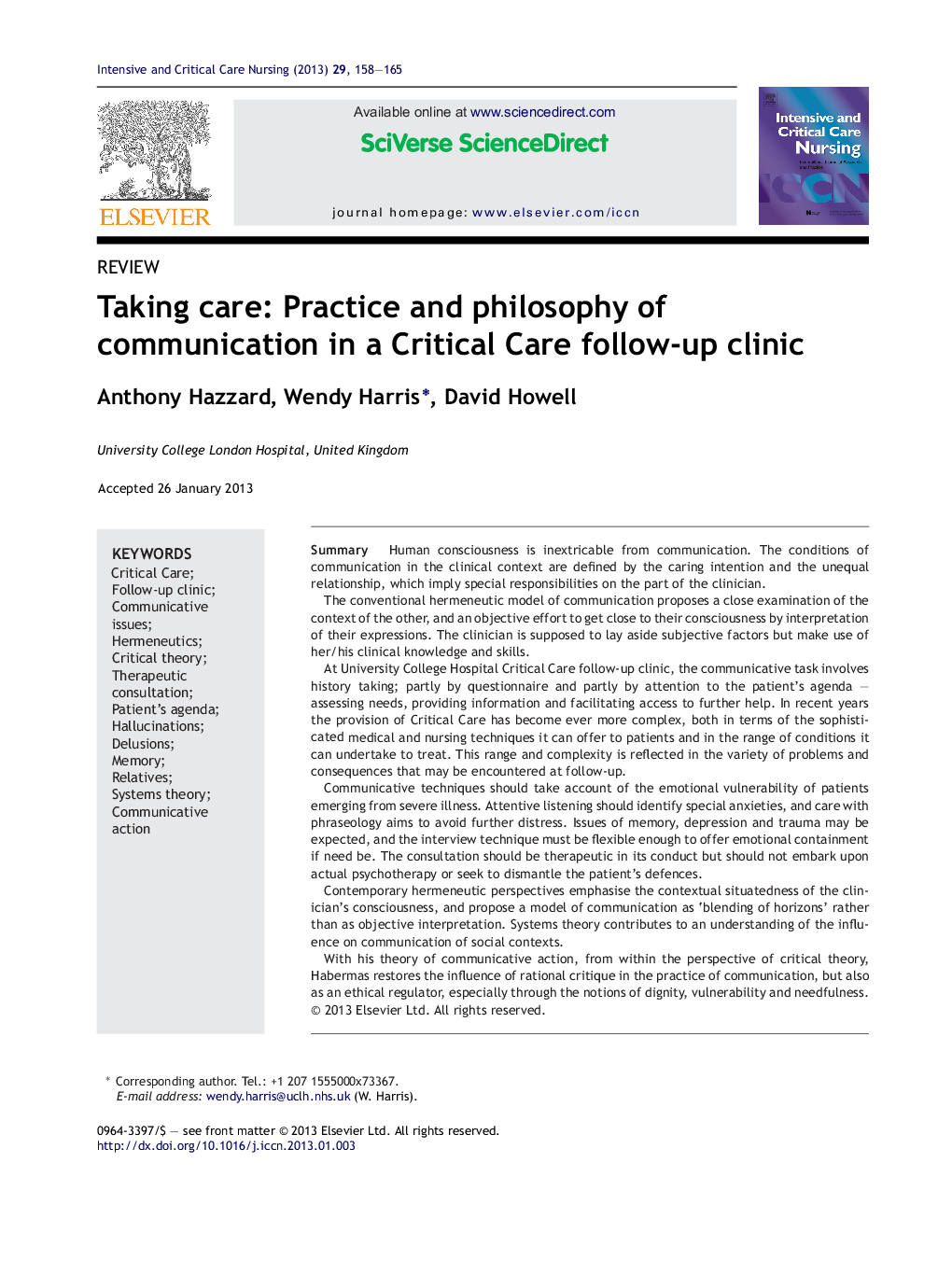| کد مقاله | کد نشریه | سال انتشار | مقاله انگلیسی | نسخه تمام متن |
|---|---|---|---|---|
| 2651992 | 1139564 | 2013 | 8 صفحه PDF | دانلود رایگان |

SummaryHuman consciousness is inextricable from communication. The conditions of communication in the clinical context are defined by the caring intention and the unequal relationship, which imply special responsibilities on the part of the clinician.The conventional hermeneutic model of communication proposes a close examination of the context of the other, and an objective effort to get close to their consciousness by interpretation of their expressions. The clinician is supposed to lay aside subjective factors but make use of her/his clinical knowledge and skills.At University College Hospital Critical Care follow-up clinic, the communicative task involves history taking; partly by questionnaire and partly by attention to the patient's agenda – assessing needs, providing information and facilitating access to further help. In recent years the provision of Critical Care has become ever more complex, both in terms of the sophisticated medical and nursing techniques it can offer to patients and in the range of conditions it can undertake to treat. This range and complexity is reflected in the variety of problems and consequences that may be encountered at follow-up.Communicative techniques should take account of the emotional vulnerability of patients emerging from severe illness. Attentive listening should identify special anxieties, and care with phraseology aims to avoid further distress. Issues of memory, depression and trauma may be expected, and the interview technique must be flexible enough to offer emotional containment if need be. The consultation should be therapeutic in its conduct but should not embark upon actual psychotherapy or seek to dismantle the patient's defences.Contemporary hermeneutic perspectives emphasise the contextual situatedness of the clinician's consciousness, and propose a model of communication as ‘blending of horizons’ rather than as objective interpretation. Systems theory contributes to an understanding of the influence on communication of social contexts.With his theory of communicative action, from within the perspective of critical theory, Habermas restores the influence of rational critique in the practice of communication, but also as an ethical regulator, especially through the notions of dignity, vulnerability and needfulness.
Journal: Intensive and Critical Care Nursing - Volume 29, Issue 3, June 2013, Pages 158–165